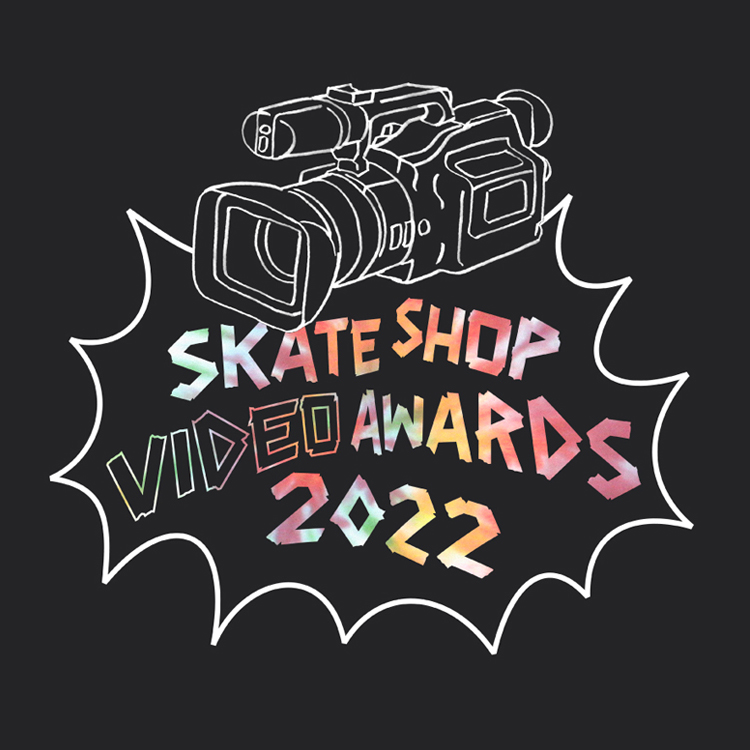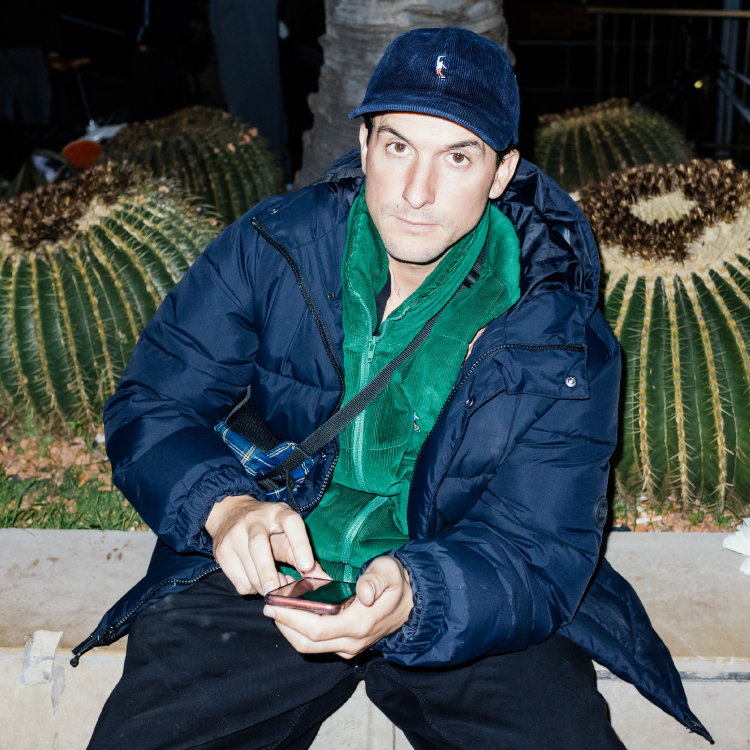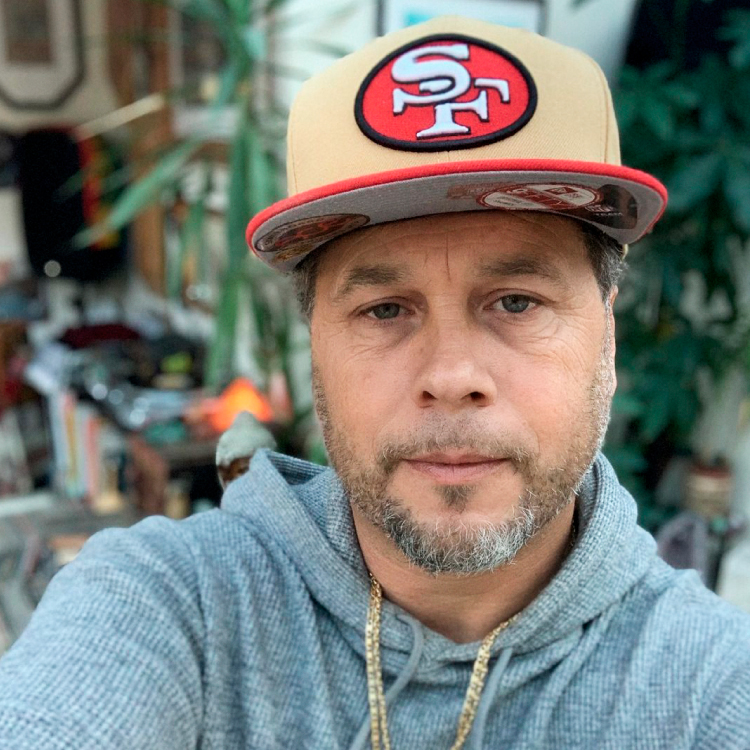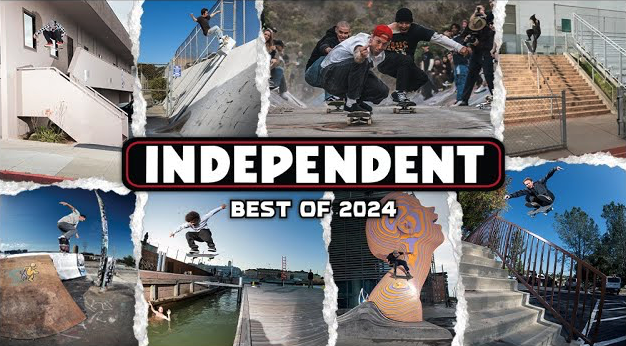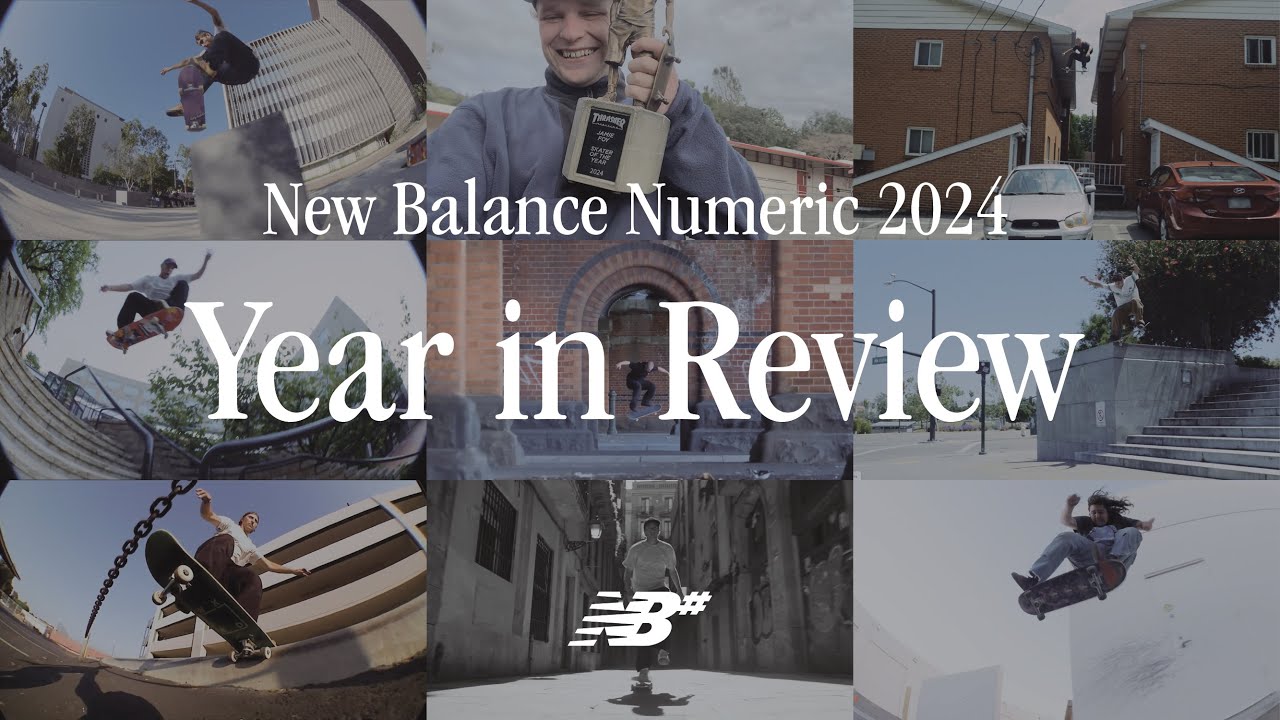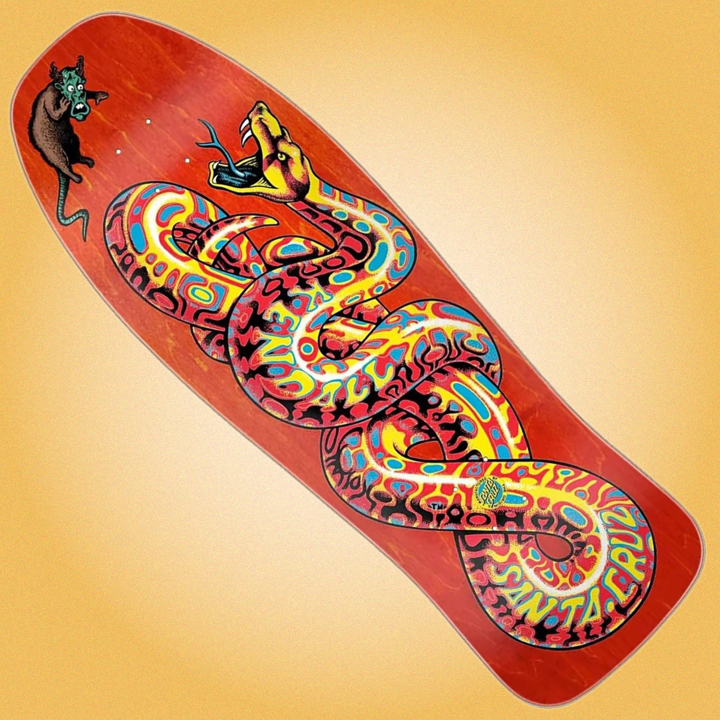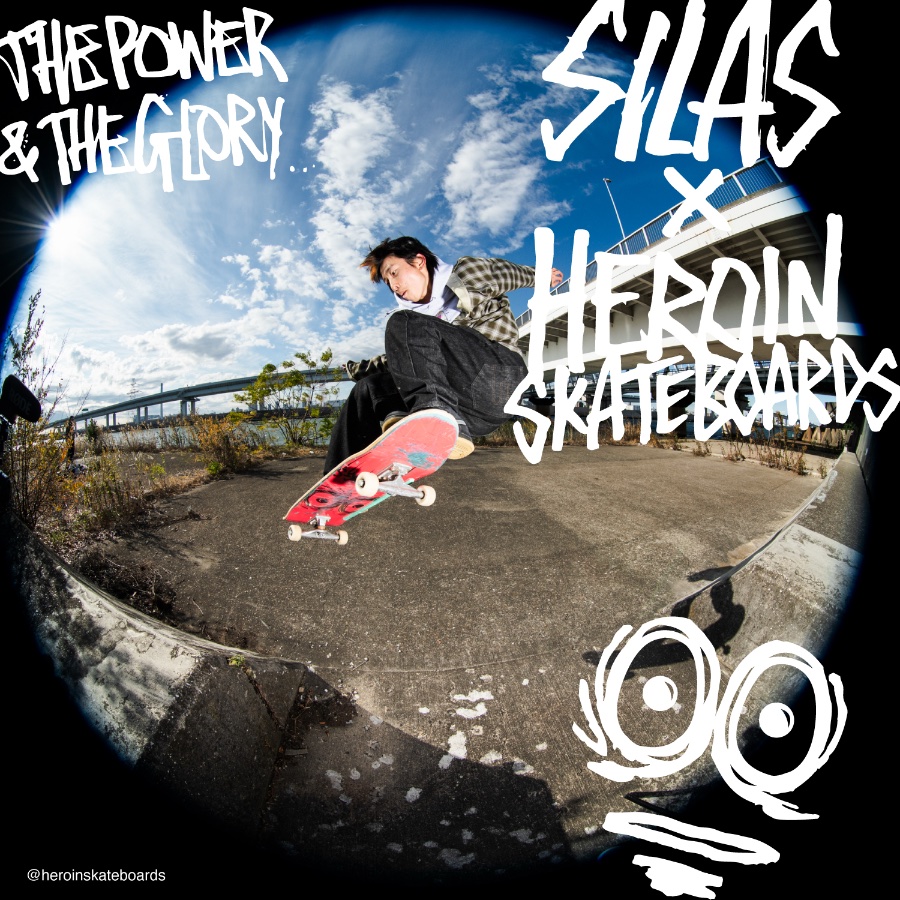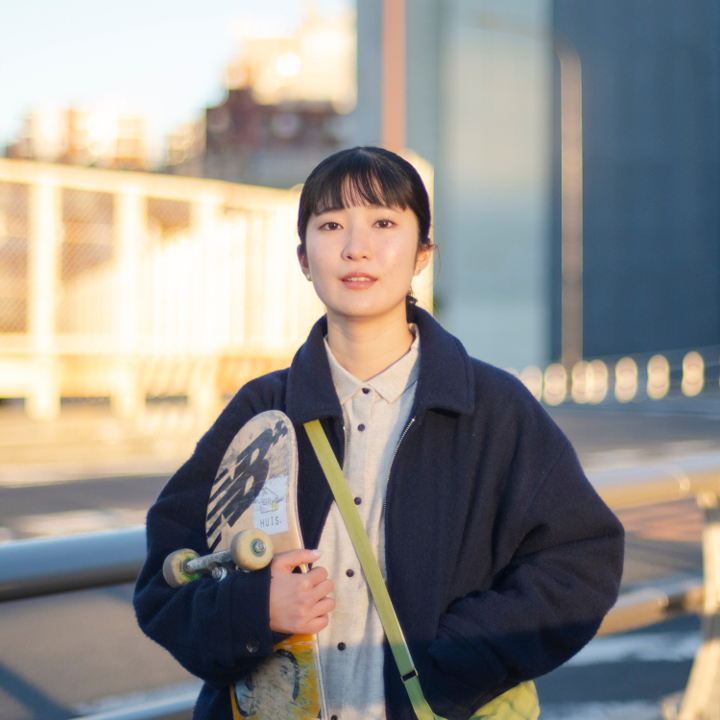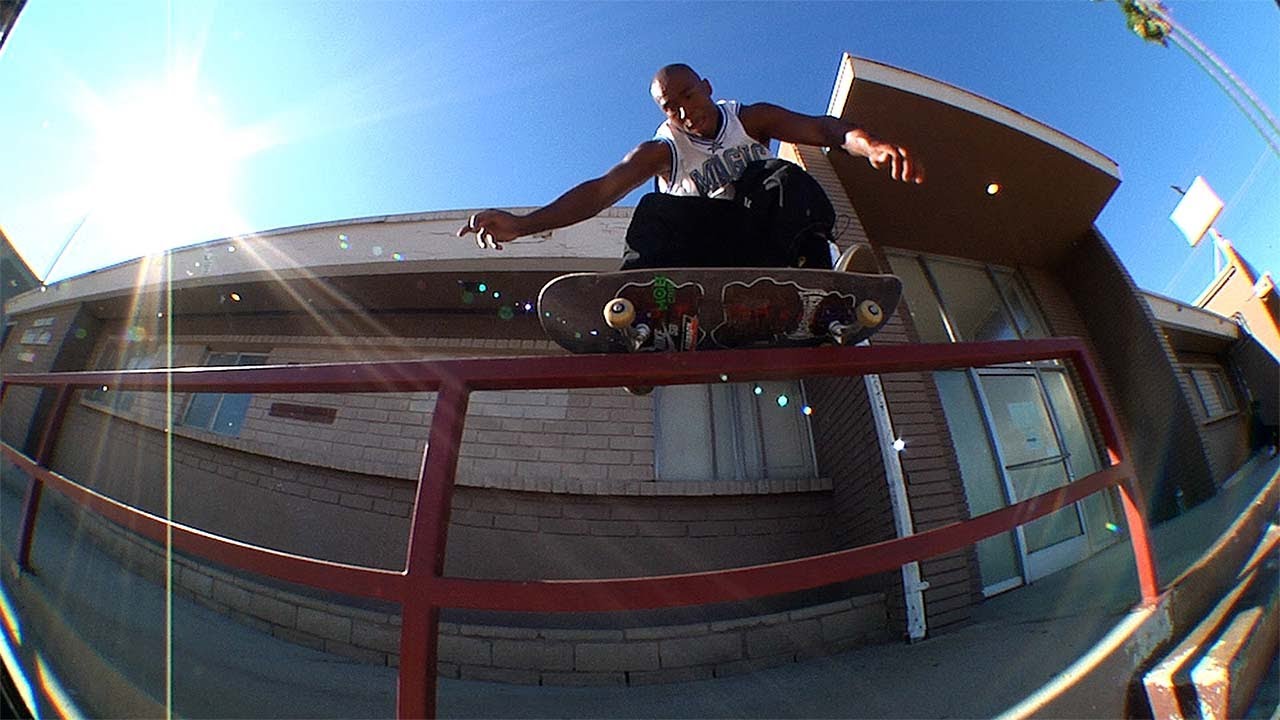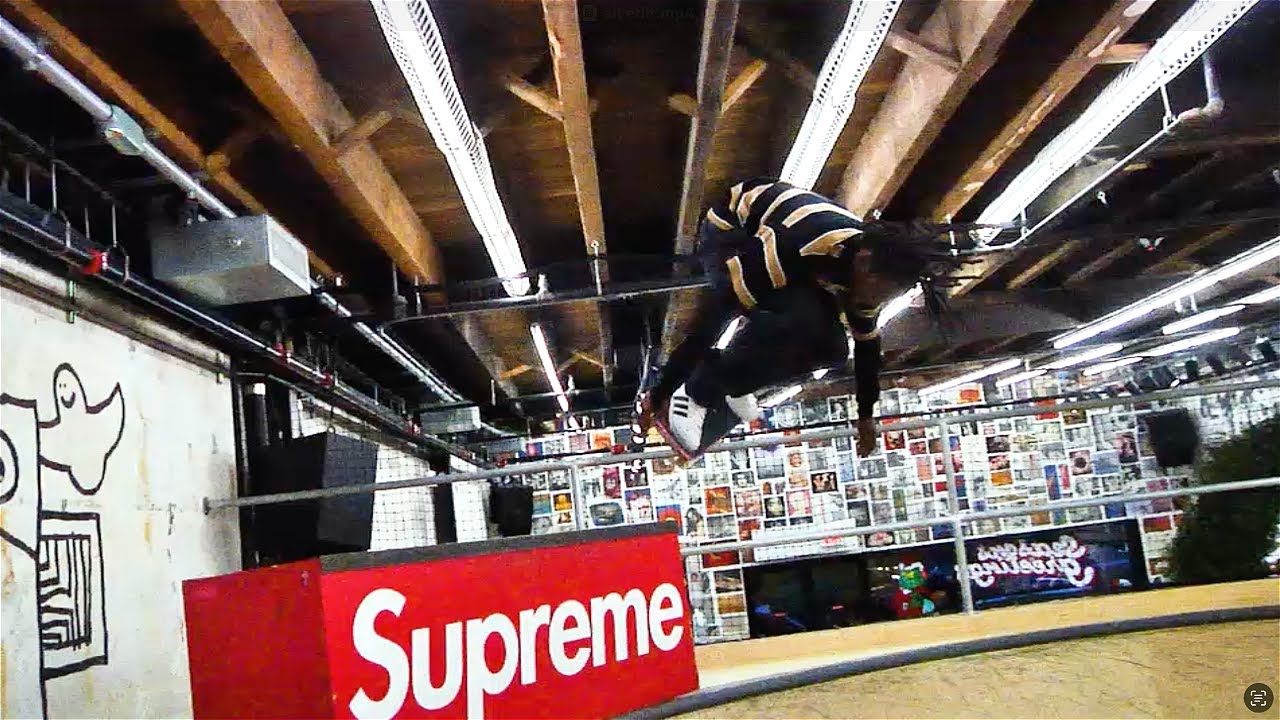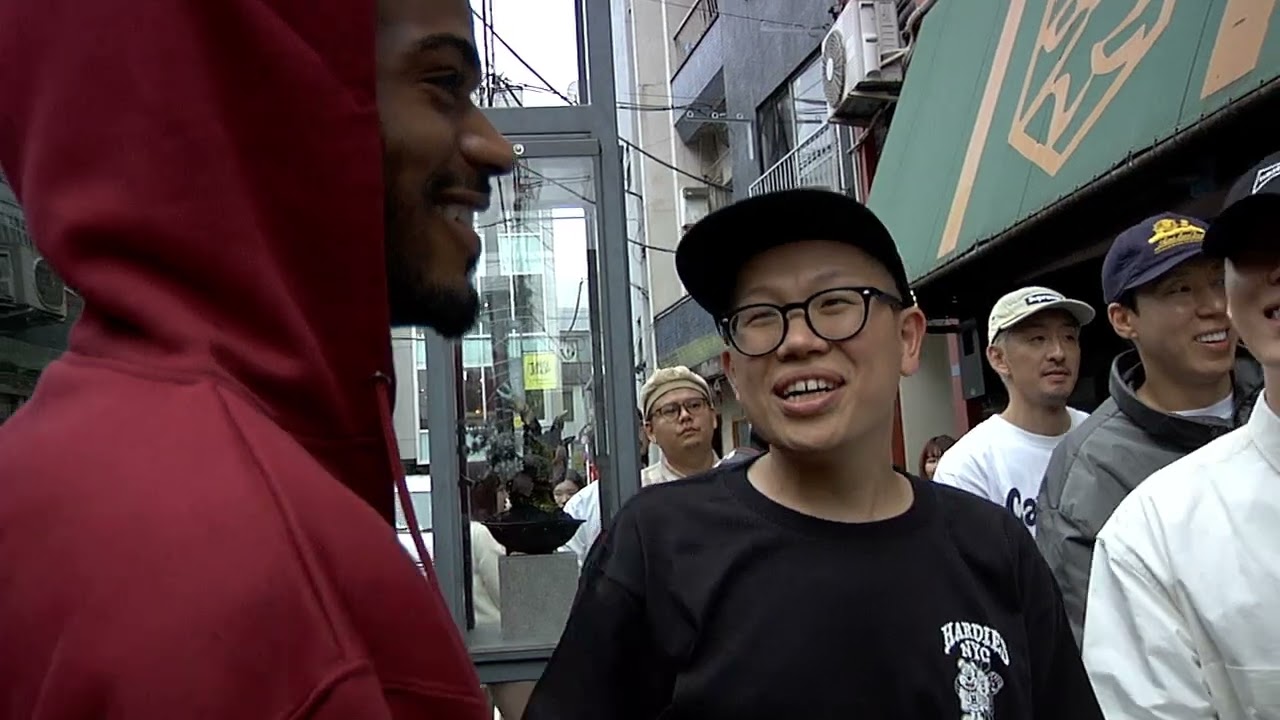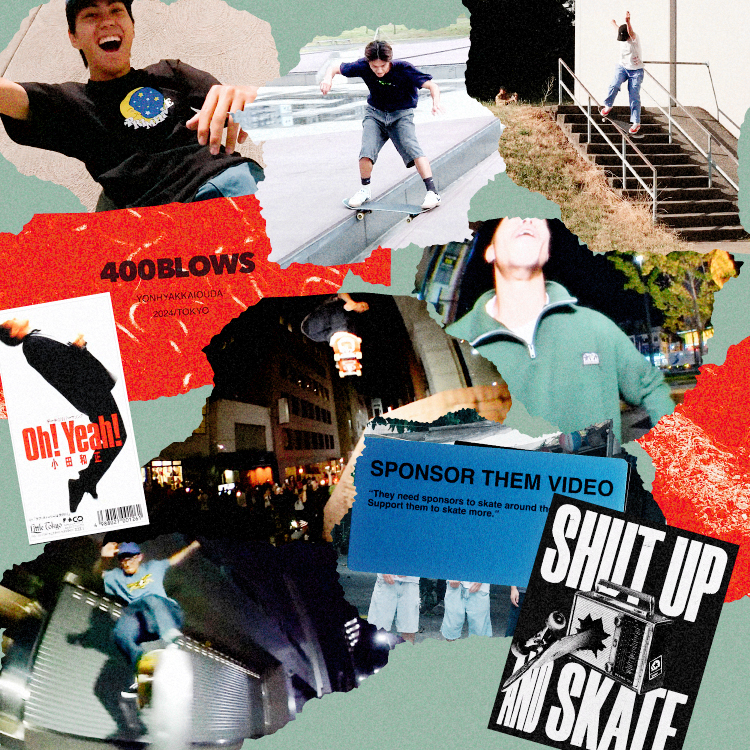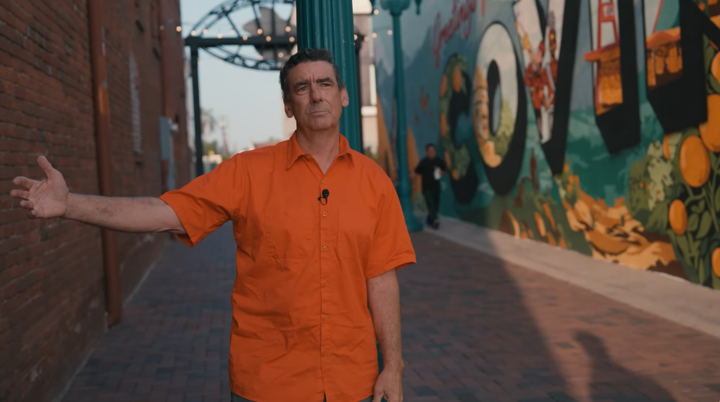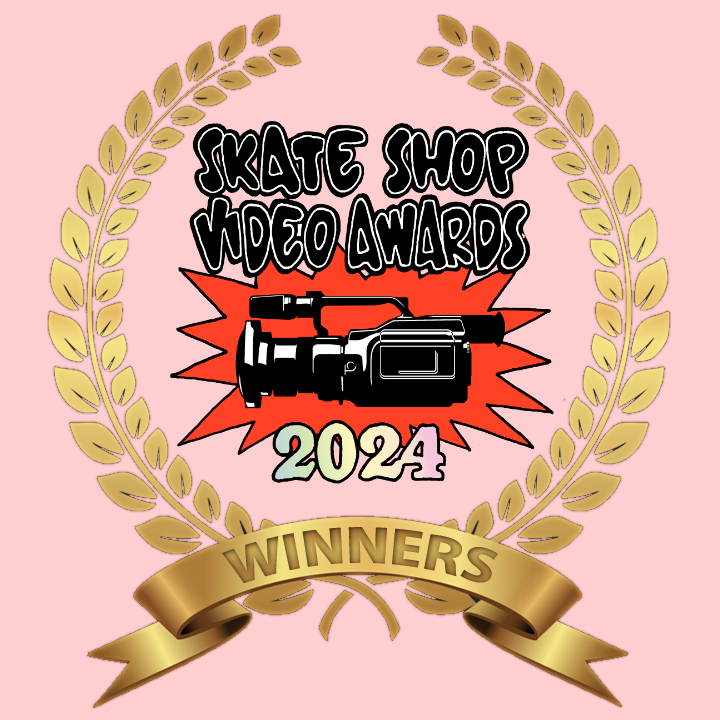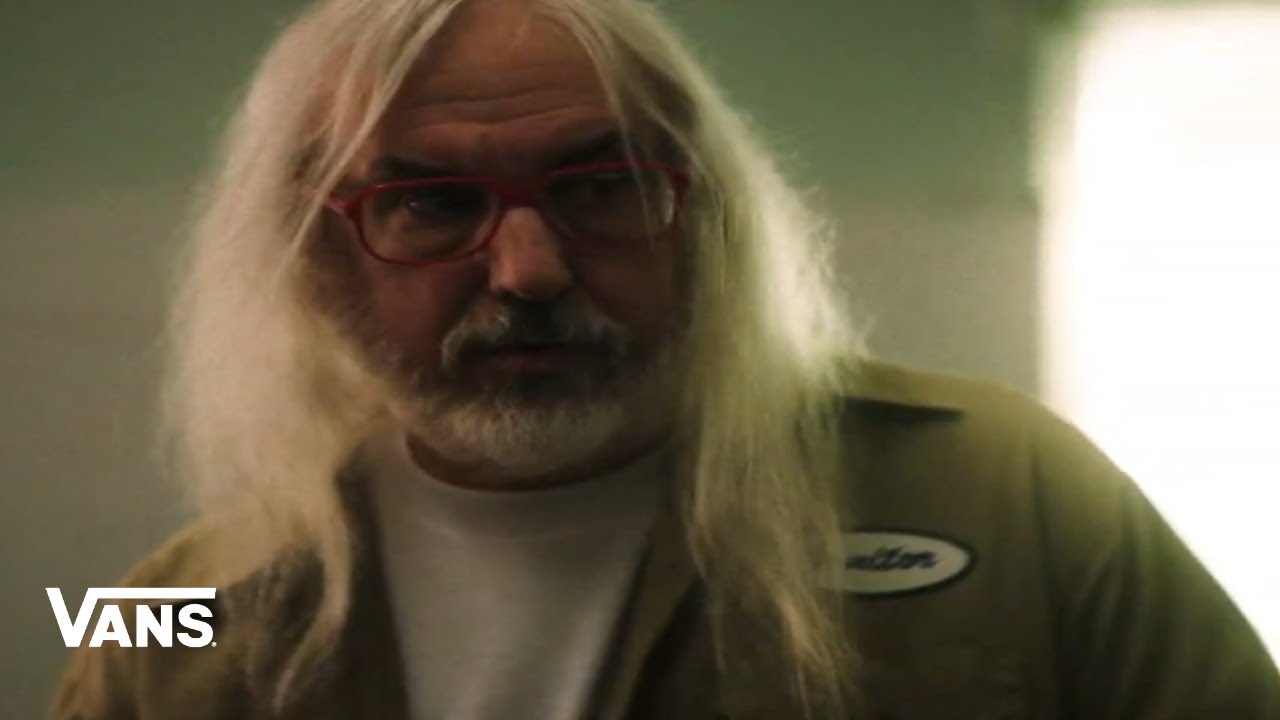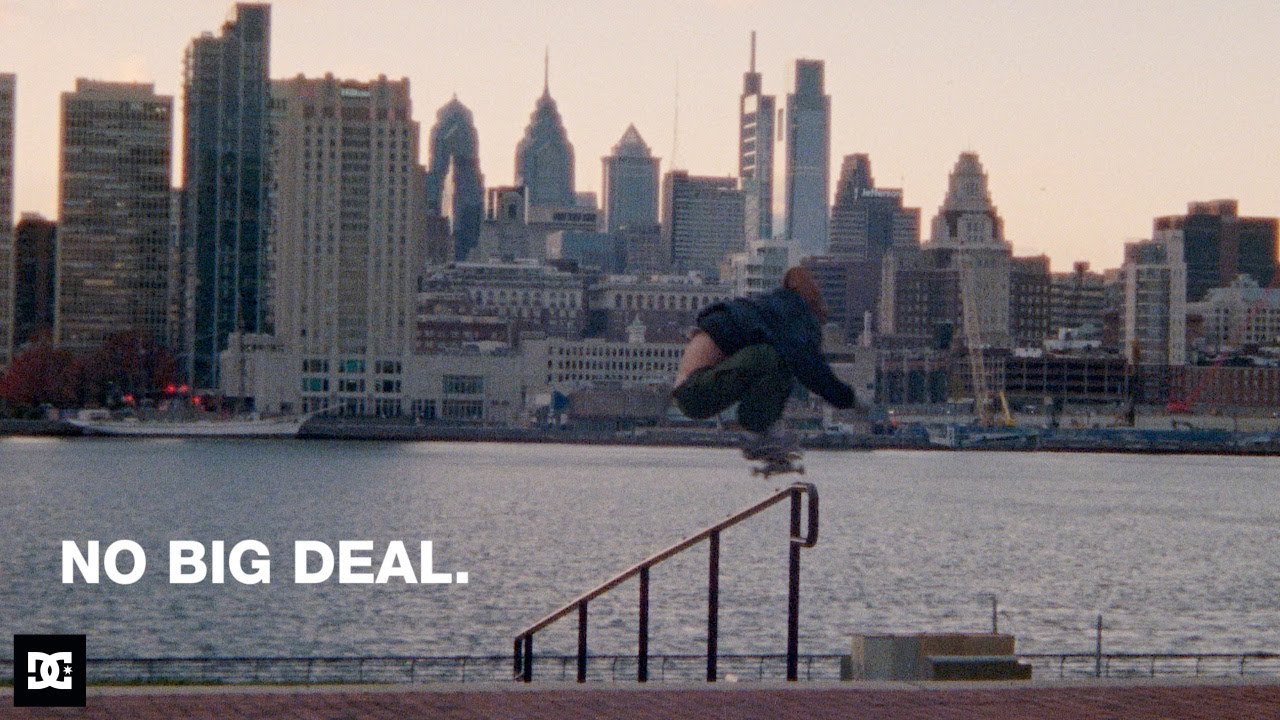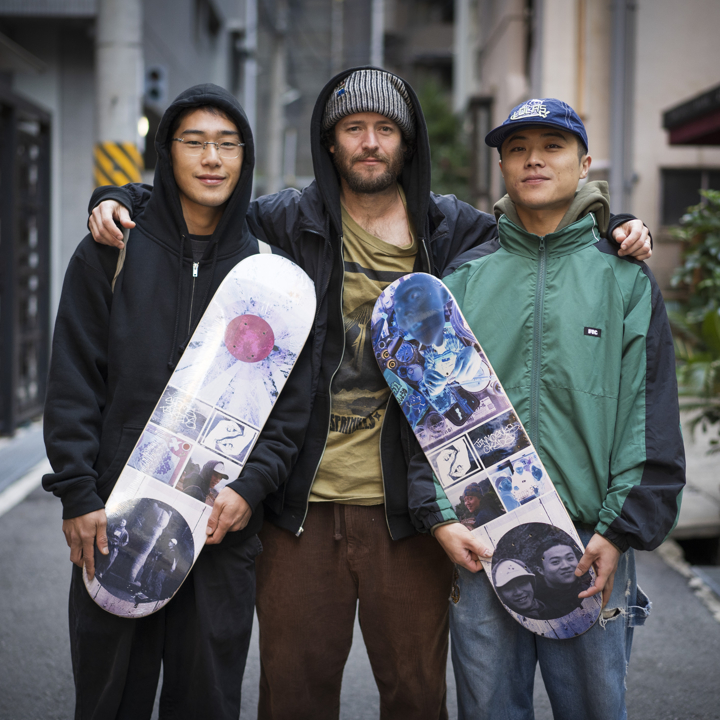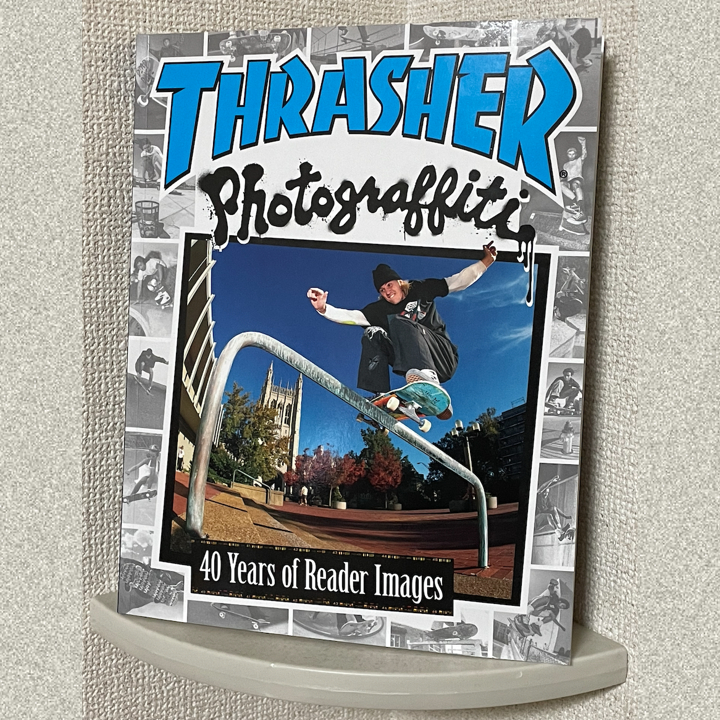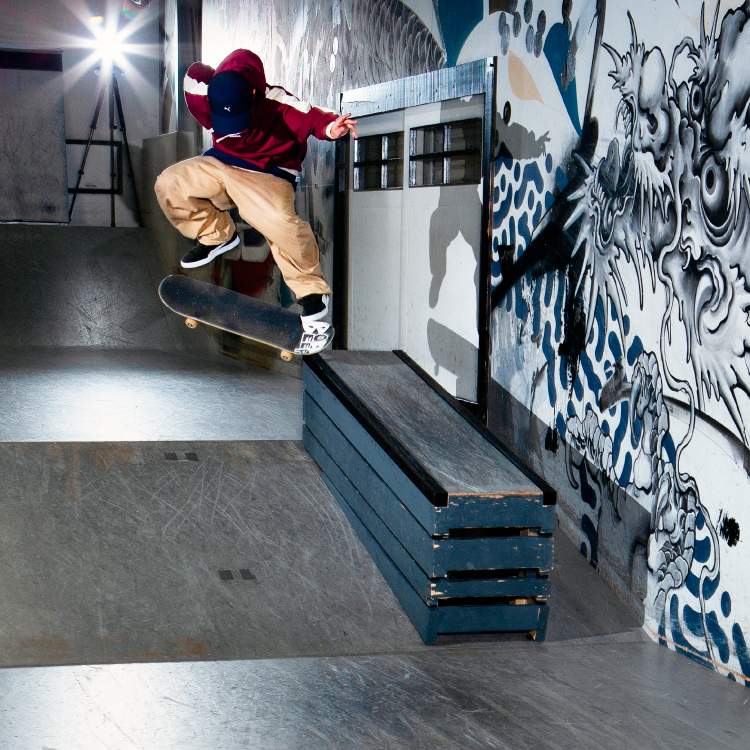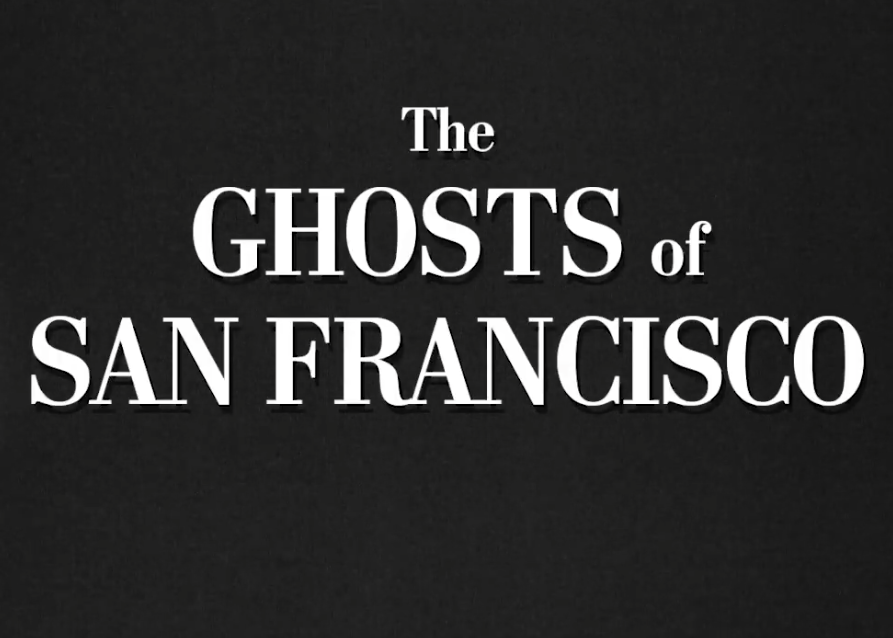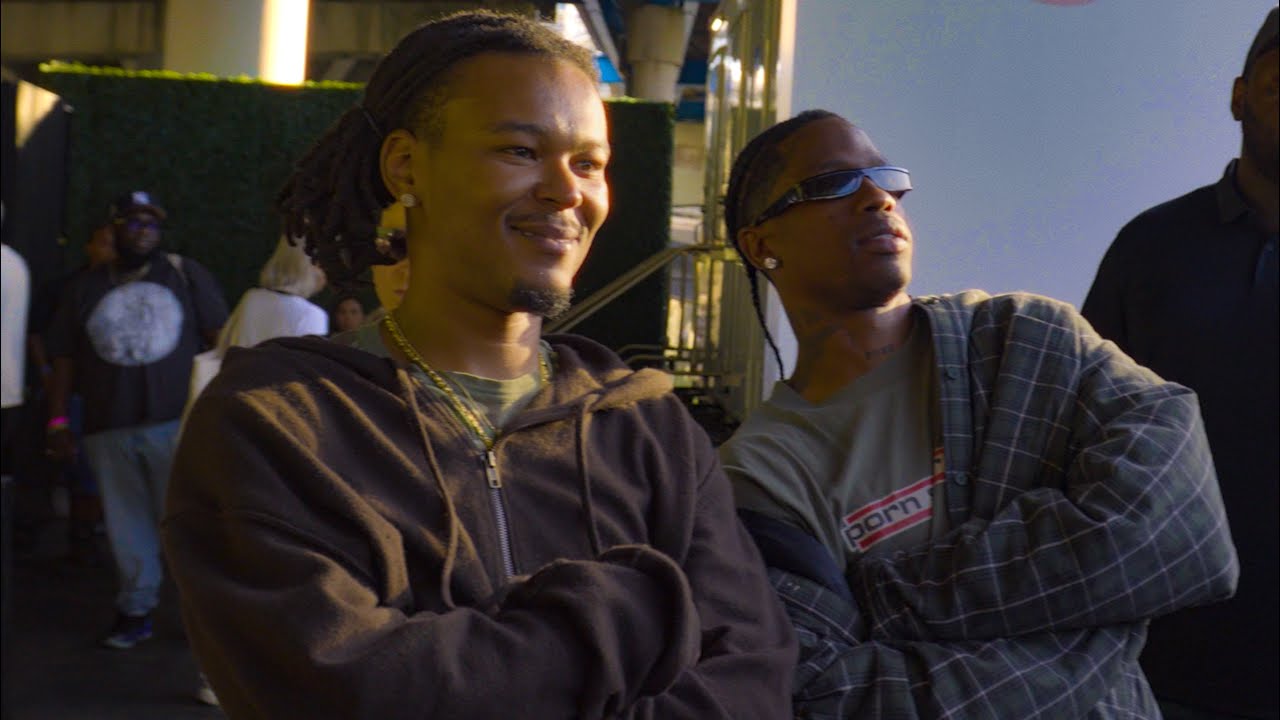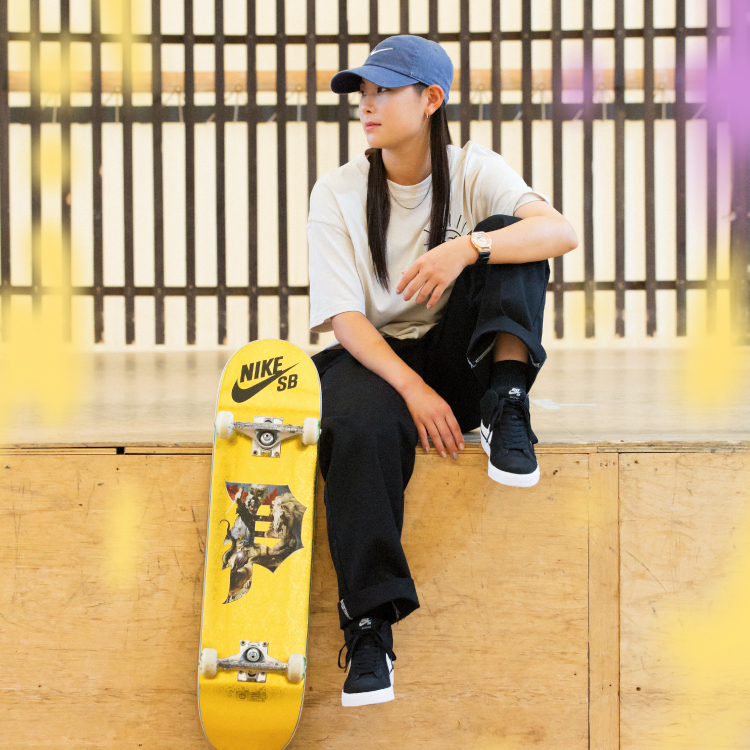With skateboarding making its debut in the Olympics next year, we caught up with USA Skateboarding's CEO Josh Friedberg. We asked the man his history in skateboarding and everything you need to know about the Olympics.
──JOSH FRIEDBERG (ENGLISH)
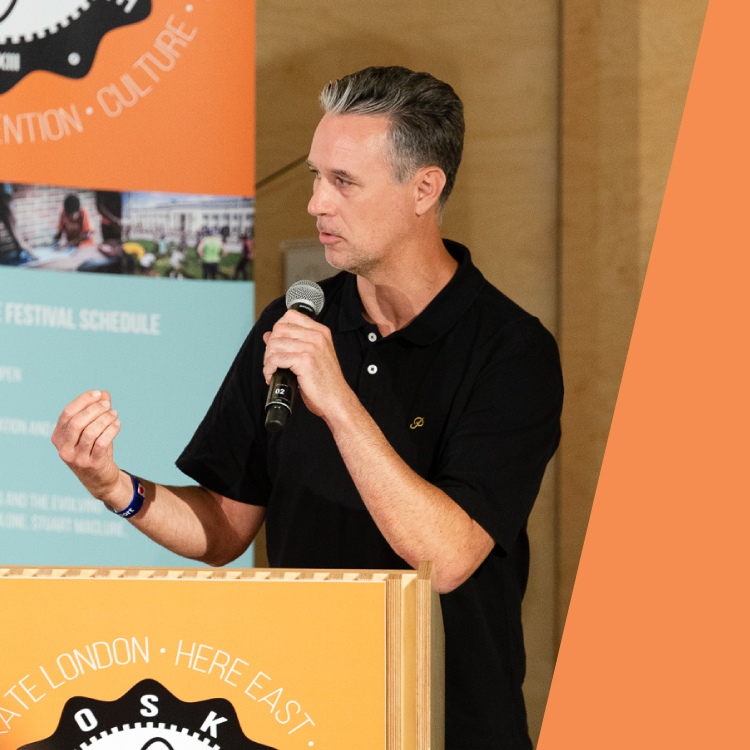
[ JAPANESE / ENGLISH ]
Photo_Jeremiah Arias
VHSMAG (V): Okay. So, I want to go through your history in skateboarding first. Can you go through the companies that you rode for, real quick?
Josh Friedberg (F): I got sponsored by New Deal in 1990. Ended up moving to California when I was 19, and skated for them for a while. Around 1994, I ended up skating for 60/40. People's Skateboards was kind of an offshoot of 60/40. I got my first pro model on People. I actually went pro when I was on 60/40, but my board came out when they spun it off into People. My first pro contest was Tampa pro in 1995.
V: You also had the last part in The Union Video as well.
F: Oh, yeah. I did. It's funny, I spend so much of my time talking about Olympics now, that I don't even think a lot about my early skate days (laughs).
V: That's important, right? That's where it all started. You also made The Deal is Dead video, and Underworld Element's Skypager.
F: It’s really important, it all lead up to me being here! When I moved to California to skate, I didn't know anything about the place. New Deal was in Costa Mesa. So I ended up moving there to be close to my sponsor and got a job at Pizza Hut, delivering pizzas. I was just kind of skating and living my life. Then I ended up getting a job in the warehouse at New Deal. Did that for a little bit, and they found out that I had some computer experience. So I started retouching graphics, and this was early, early days of doing that kind of work. Eventually it was time to make a video. Steve Douglas who had done the first three New Deal videos, the Promo, Useless Wooden Toys and the 1281, just said, "Hey, you want to make a video?" And, I said, "Absolutely." So that was The Deal is Dead, and then Underworld Element video, worked on that with Rick Ibaseta and Andy Howell right after that.
V: Skypager was one of my favorites. Then you eventually you start 411VM with Steve Douglas. Were you still on New Deal?
F: I was still skating for New Deal when I was working on those first couple of videos. Even when we started 411VM, I was still skating for New Deal. I didn't really stop skating professionally until 1997. I hurt my knee and ended up getting my third knee surgery. And I just wasn't able to get back to skating the way I wanted to. And, I decided to kind of shift my focus full time into 411VM at that point.
V: How did you start 411VM? Video magazine format was complete new back then.
F: It's interesting. I'd worked on The Deal is Dead and Skypager, and got those videos turned out pretty quick. We had one of the very early digital video editing systems called Video Effects. It allowed you to edit in a 160x120 window. Super pixelated, but it was digital. And then, it would machine control the decks and lay it back to the master. I was able to pick that up really fast. And then, we were working on a promo zine for New Deal, like a Xerox zine with product and interviews and photos. We were taking frame grabs off of video and put them in the zine, which in 1992 was not the easiest thing to do.
V: Yes, I remember frame grab sequences in magazines.
F: So Steve and I were talking about the process and it was taking really long, and mentioned off-hand, "Hey, maybe it's easier to leave this on the video." And, that triggered something in Steve’s mind. A guy named Tim Leighton-Boyce who did Rad Magazine in the UK, had told Steve at some point, "What's next is a video magazine." But Tim meant a magazine full of video frame grabs, because that was becoming really popular. Skating was so inconsistent at that point and shooting film to capture those tricks was really tough. The time it was taking to get the zine done and that comment from TLB triggered this discussion of, "Well, why don't we just do a magazine, but leave it on videotape?" That discussion between Steve and I was the beginning of 411VM.
V: Did the idea get accepted right from the start?
F: It was tough, because you know, at that point there hadn't really been any video magazines. So when you'd explain it to someone, they just give you this confused look like, "I don't know what you're talking about, you sound crazy." We ended up editing a demo that we sent around to some shops and different companies. Just to show them what we were thinking. And then, we ran one ad in Slap Magazine, and that was the only time we ever advertised, actually.
V: 411VM was a game changer for sure...
F: Once we got the first issue out in the world, it really started to pick up and do what it needed to do, in terms of people getting excited to see it. It took a little bit of time to build the business into something that was sustainable, but luckily we had Giant Distribution supporting us in the beginning that allowed us the freedom to grow. And then once we figured out, it was like "Okay. We can't just do six videos a year, because that doesn't create enough income to support an actual business." And we started adding the contest videos, the vacation videos, instructional videos, and the best of's. Once we had those to fill in those off months, all of a sudden we had a real business and we were able to start growing.
V: Who came up with all the ideas for sections like, Wheels of Fortune, Industry and so on?
F: After Steve and I had talked about the initial idea, we got all the creatives that were involved with New Deal and Element and went to Paul Schmitt's house. It was like Steve, Paul, Andy Howell, Johnny Schillereff, Jose Gomez, Justin Girard and myself. Gorm Boberg from Sweden, and a few other people that were involved in the creative side of Giant Distribution, as a whole. We just started brainstorming and that was where all that stuff came from. And Andy, Johnny, Jose and Gorm were all working on logos. And we came up with the name 411. In the States when you dial 411, it was how to get information. So, you could find out people's phone numbers. So 411 Video Magazine was supposed to be information about skateboarding.
V: You had World Report section, where some of the Japanese skaters were featured for the first time.
F: Yeah. That was a big push for us. What we were trying to do was to be able to create a connection for people that love skateboarding. That's what the point of 411VM was. If you loved skateboarding, you'd have a way to be connected to it. When I was a kid and when I started skating in '85, I'd see a magazine and see guys in the air on the vert ramp. I had no idea how they got in the air. I was that far removed from skateboarding growing up in Kansas. When I first watched Future Primitive in '85, my brain exploded. I just I couldn't believe how amazing skateboarding and everything involved with being a skateboarder actually was. Video had that power. Similarly, Steve grew up in England, far away from skateboarding in California. Unless you can see skateboarding, it's really hard to understand what's going on. And so we always wanted to be inclusive of what was going on in the whole world of skateboarding, not just California.
V: 411VM meant a lot for skaters around the world. What happened after that?
F: 411VM was acquired by a company in LA and I worked there for about a year after the deal. I took some time off and moved to the East Coast, where my ex-wife grew up outside of Philly. After a couple years, my friend Johnny Schillereff was on the board of the International Association of Skateboard Companies (IASC). They were looking for a new executive director, and he thought that I would be good for that role. I ended up getting that job in 2011 and at that point I moved back to California. I worked at IASC for almost five years and that was really the beginning of my involvement with the Olympics, because Gary Ream, who started the International Skateboarding Federation (ISF) and USA Skateboarding would give me updates to share with our members about what was going on with the Olympics and skateboarding. Eventually, I moved on from that job. I was working for the Street League Foundation, helping get skate parks built in underserved communities. I did that for a couple of years. During that process, the ISF was applying to the IOC, to be recognized as the international federation to govern skateboarding in case skateboarding went to the Olympics. Brian Atlas at Street League was really cool in giving me some freedom to do some consulting work for the ISF during that. And that just steadily turned into a full-time job. And now I’ve been working on all Olympic stuff for the last four years or so.
V: What's your title?
F: I'm the CEO of USA Skateboarding.
V: Can you explain what USA Skateboarding is about?
F: USA Skateboarding is the national governing body for skateboarding in the United States. Basically, in the Olympic structure, each country will have a federation that represents the sport. And, that's what USA Skateboarding does here.
V: What are the contests that skaters need to enter to earn the score to qualify for the Olympics?
F: Street League is the pro tour for Street qualifying. There's also what they call five-star events, which get a less points than the pro tour. That's like the Dew Tour, it had both Street and Park. There's also International Skateboarding Open (ISO) events. The World Skate SLS Street World Championships will be in São Paulo this year.
V: You've been seeing all these contests all around the world. What do you see the state of skateboarding now?
F: You see, it's not only about America anymore. You see French, Brazilians, Japanese, and skaters from all over the world. One of the benefits of Olympic inclusion has been creating the necessity to open up these contests, to allow more skaters to participate. A lot of them were invite only, and kind of closed before this round of qualification. But, to be a part of an Olympic qualifying process, you have to be open and accessible. So, those events that had 30 or 45 skaters, now have 150 or 190. It's really cool to see, because all it's doing is allowing more skaters to participate in the system. No matter what, the more diverse an ecosystem is, the faster it's going to progress. So, that's been really fun to watch.
V: It's very global now.
F: Yeah. I think what's been cool is having so many countries represented. It gives you a chance to see places where skateboarding isn't developed. But, you know as a skater, you know what it was like to start. You don't get to cheat at skateboarding. Everybody starts the same way. Everybody falls down the same way. So when you see these people who are committed to trying to learn how to skateboard, it's really fun. Also despite the fact that this is all set up to be country versus country, it's really still skateboarding. And people are stoked. Both the World Championships in Nanjing last November, and in Rio this January, they had 40 plus countries represented. They reminded me of the early Europe contests during the '90s when I would travel to skate those events. The vibe has been super good.
V: You mentioned 40 countries attended the recent events. How many countries are going to be in the Olympics?
F: It's not limited by country. Basically, there's going to be 20 skaters in each event. So, 20 men and women for Street, 20 men and women for Park, up to a total of 80. Inside each event, you have to have at least one person from each continental region. So there's the five continental regions. You have to have one person from the host country. All those other spots will be filled, based on the Olympic World Skateboarding rankings. Those are from earning points, it's those qualifier events we were discussing. You can only have up to three people, from any one country. So even if you have a bunch of Japanese, or American, or Brazilian in the top 10 or 15, you'll only be able to take the top three. With the simulations that we built for the point system, it looks like there'll be anywhere between 11 and 14 countries represented in the events. And the top eight or 10 people should be the people you expect, the best contest skaters in the world. The next 10 or 12 will probably be people from other countries. Who have a chance to get in, because of the quota system.
V: So one skater from the host country, that means one skater for Street, one skater for Park. And, that's for male and female. So four skater are guaranteed from Japan.
F: Right. But I think that there's not going to be any issues with Japanese skaters qualifying. It's amazing to see how strong Japan is right now, and how deep the team is. It's really cool. I think it's funny, because people are like, "How did that happen?" Like, "Where did all these Japanese skaters come from?" There's just amazing skateboarders, coming from all over the world right now. And, I'm excited because I think the Olympics will be a chance, to showcase how diverse skateboarding is. And, that it's not just this California hobby.
V: What's the format of the contest going to be?
F: Street will be like Street League. It'll be two runs, five tricks, and your best four scores count. Park will be three runs, best run counts.
V: What about the course design?
F: World Skate made recommendations of three different designers, that they believed would be able to handle the course construction for the Olympics and the Tokyo Organizing Committee selected California Skateparks to do the job.
V: Are they going to work together with the local park builders?
F: Yeah. Part of the way that Olympics contracting works, is you need to have local partners involved. So California Skateparks is doing the design and helping with the finishing. And then, they'll use the local partners to do a lot of the other work.
V: As a skater, what are the things that you keep in mind, when working with the Olympics?
F: The priority for us is that the decisions about skateboarding are being made by skateboarders. It's so easy to mess things up in skateboarding if you don't have actual skateboarding experience. So that's really been our biggest push. If you're talking about skateboarding and you're trying to do this right, which the IOC and Tokyo both want to make sure, that this is done right. It's going to be a big deal in the Olympics next year, and we're so excited. But there's still a chance to screw it up, if you don't listen to the people that know what they're talking about. So, that's been the main push, is to make sure the skateboarders are involved in making the decisions.
V: Have you ever had to go through issues working with people from outside of skateboarding?
F: Overall things have been really good but the politics of Olympic sports are crazy. And all the processes and some of those things that you have to deal with to get to the right decision. In skateboarding, we're so used to having an idea. "Oh, that makes sense. Do it." But in this world, because there's so much bureaucracy and politics around it, even if you can have the right idea that everyone agrees, it takes like two years to get an agreement. Those are the things that make it complicated. But I just keep in mind that at the end of the day, it's just skateboarding. And skateboarders always find a way.
V: There are people who are not down with the Olympics. What are your thoughts? What do you think about the people who complain about it?
F: I think it’s great, the diversity and differing opinions that surround skateboarding are what make it great. Skateboarding isn’t any one thing, it’s completely personal. It's art, really, art driven by passion. But competition is a piece of skateboarding as well and always has been. The best part is that no matter what anyone else says or does, it has no effect on me actually riding my skateboard. But I get the knee jerk reaction like, "Oh, this is mainstream." That's the thing I think people don't realize. It's not. Skateboarding has been doing the same thing as long as I've been involved, which is 34 years now. And people are coming to skateboarding because it's attractive. The heart of skateboarding is just fun, and freedom of expression. Right? That's it. That's why you start skateboarding, that's what keeps you skateboarding. All the other things are pieces of it. And there's art, music and fashion, design and photography, and all of these amazingly creative things wrapped around skateboarding. And, more people are influenced what skateboarders do now, which is fine. It's part of skateboarding maturing. I'm 47, my daughter skateboards, it's totally a normal thing. That wasn't normal when I started skating.
V: Yes, we see parents encouraging their kids to skate in Japan too.
F: But it's just the way the world changes. And a lot of people don't understand that outside of the States, skateboard or sport is controlled by government. Once you're in the Olympics, that means that the government will turn on money, to start supporting skateboarding. So they're building skate parks and allowing kids to skate. The idea that somehow allowing a kid to have the same opportunities as we did is a bad thing, is crazy to me. So people are gonna hate, it's a part of skateboarding. Everybody knows it. But once they see the actual impact and the fact that skateboarding is changing kids' lives around the world, I hope that they'll sort of understand that Olympic inclusion, if guided by skateboarders, is going to be a good thing.
V: I agree. What about the doping test?
F: Everyone was hyper concerned about doping, just because there's this idea that all skaters smoke weed, and it'll never work. But, the thing about it is, that the skaters that are competing in the Olympics are athletes. They're elite athletes. If one of the requirements is that you can't smoke weed during competition, then that's not an issue. You know, we've had some people that I know, that smoked a ton of weed, just quit. Because they said, "Look, this is what I do for my job. If this is what I have to do to continue doing my job, I'll do it."
V: Right.
F: The other amazing thing about skateboarding, is that you can be a pro skater and never enter a contest in your life. That is a unique thing. So if you don't want to quit smoking weed, if you just want to skate and film video parts and be amazing on a skateboard, you can do that too. It's really open to whatever you want to do. But rewinding back, we did about a year of education from the international level, for the skaters competing in events. So that they would know what was going on with anti-doping, and understand the requirements. And, since the qualification events have started, they've started doing the anti-doping testing, it hasn't been an issue.
V: That's good. What do you think the Olympics will bring to skateboarding?
F: It's the opportunity for governmental support of skateboarding throughout the world, which will just allow more skateboarders to happen. You know, it doesn't matter how you start, it matters that you start. You don't really know anything about skateboarding at first. You just try it one day, and you have fun. And having a place to do that in a lot of these countries where it might've been frowned upon before, or not even possible. They're building skate parks in Turkey right now, and in Iran, and China. And, those people that start skating are going to become skateboarders if they stick with it. It doesn't matter if a competition was the reason that you got excited about it. The day you start skating, you're not entering competitions. So I think that the opportunity with the Olympic inclusion is to take what skateboarding has built, and use that base to continue to grow it in an authentic way. There's places where the Olympic support can fill in the blanks, where the industry doesn't. There's a huge opportunity for skateboarding in Africa, supported through Olympic Federation systems. Places that don't have any other way, or don't have any industry, or even a skate shop. It being an Olympic sport, that will allow skateboarding to grow and flourish.
V: What's your prediction for the medals?
F: We feel pretty good that the US will win a medal in every discipline. That's our goal right now. But you know, they're skate contests, right? It's any given day, and some days, some people skate better than others. So, I'm excited to see what happens. It's cool, because the events are going to look like normal skateboarding events. They're just going to happen to be broadcast to five billion people.
V: Wow. Five billion?
F: So the vast majority of those people will have never seen skateboarding before. And hopefully it's going to blow their mind, just like it did for me when I was a kid in 1985.
V: It's historical. I heard skateboarding is going to be the first event in the Olympics games?
F: Basically, for prime time in the US, on Friday it will be the opening ceremony. Saturday, it will be Men's Street, and Sunday it will be Women's Street. So, the first two prime time slots in North America will be skateboarding, but they won’t technically be the first events.
V: We're really looking forward to it. I saw your Instagram and you still got your heelflip, and you were dropping in on a vert ramp. That was awesome.
F: Yeah. I scare myself every once in a while, actually. The last time I dropped in on vert was 2014. It was at the Youth Olympic Games in Nanjing. It's been five years, and before that it had probably been 10 years. So I like to do it every once in a while, just to scare myself half to death (laughs).
Josh Friedberg
@joshfriedberg
Born in 1972. Josh started his pro skate career at New Deal in the early '90s and is responsible for starting 411VM. He's been working with the Olympics and steering skateboarding events in the right direction.



